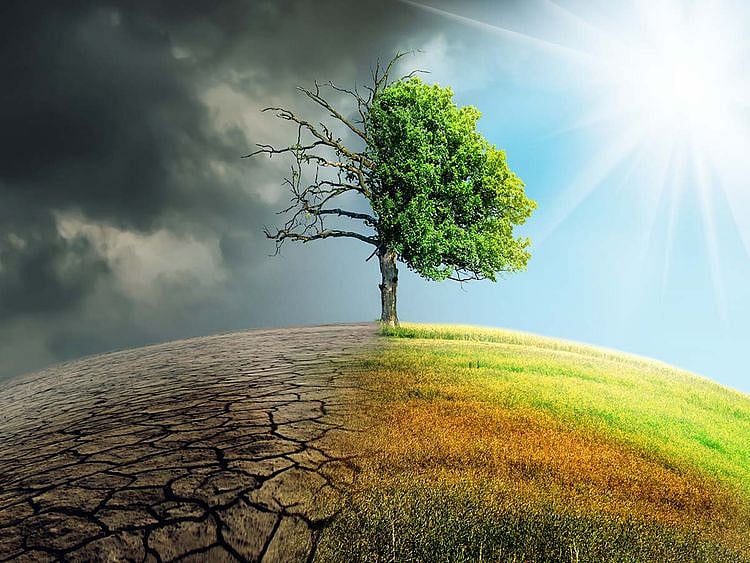Climate change: a threat to legitimacy and stability of countries
It is also a major driver of conflicts and economic inequality globally

For nearly two decades, the world has faced two significant challenges: the ongoing impact of global warming and the simultaneous increase in populist governments in various regions. It’s crucial to clarify that climate change didn’t cause the decline of democracies, nor did democratic decline lead to climate change. However, the adverse effects of environmental disruption have profound consequences for the stability and prosperity of democracies worldwide.
Climate change is not just an environmental issue; it has become a major driver of conflicts and economic inequality globally. As our planet warms and weather patterns become more unpredictable, the consequences go beyond rising sea levels and extreme weather events.
Climate change worsens existing vulnerabilities, widens the gap between privileged and marginalised groups, and triggers disputes over resources and migration. Competition for limited resources like water and fertile land often results in conflicts, putting democratic governments in difficult positions as they struggle to maintain control and provide security, ultimately undermining their legitimacy.
Social justice and equality in jeopardy
The impacts of climate change are not distributed equally. Low-income communities and countries contributing less to greenhouse gas emissions often bear the brunt of climate-related disasters. The economic burden of climate change disproportionately affects these vulnerable populations, perpetuating existing economic inequalities. Many democracies in the Global South struggle to effectively address climate change, leading to economic decline, unemployment, and financial instability, which undermine the prosperity they promise their citizens.
One of the core principles of democracy is the pursuit of social justice and equality. Climate change exacerbates existing social disparities by disproportionately affecting vulnerable populations. In addition to economic and social consequences, climate change has serious implications for public health. Heatwaves, the spread of diseases carried by vectors, and deteriorating air quality are health risks associated with climate change.
Democracies have a duty to protect the health and well-being of their citizens. Failing to effectively address climate change not only jeopardises public health but also results in increased healthcare costs and a lower quality of life, eroding the legitimacy of democratic systems further.
Climate change-induced disasters, such as hurricanes, wildfires, and floods, often lead to a breakdown in trust when governments fail to provide effective disaster response and recovery efforts. As climate-related disasters become more frequent and severe, democracies struggle to respond effectively, leading to increased racial and class inequality, widespread dissatisfaction, and unrest. Social and political instability, along with diminishing trust in state institutions, pose significant challenges to maintaining order in many democracies in crisis.
Many democracies, especially in the Global South, have been slow to respond to the climate crisis, and their efforts have often fallen short. This lack of decisive action erodes public confidence in their ability to address climate change challenges. Inaction on climate change not only threatens the environment but also undermines democratic ideals of justice, equity, and representation. When citizens perceive that their government prioritises corporate interests over the needs of the people, trust in democratic governance further diminishes.
Democracies are built on the idea of intergenerational responsibility, where each generation is tasked with ensuring the well-being of the next. Climate change serves as a stark example of how neglecting long-term challenges betrays this responsibility. Democracies that fail to take strong action on climate change prioritise short-term interests over future generations, contradicting the core values of democracy. No doubt, ignoring the challenges posed by climate change has been detrimental to democracies.
Why trust is integral to political stability
Democracies that fail to act put their own stability, prosperity, and fundamental principles of justice and representation at risk. Political legitimacy is a crucial concept in democracy, playing a central role in the survival and stability of democratic systems.
As climate change accelerates and its consequences become more visible and devastating, governments worldwide face significant challenges to their legitimacy. Trust in government is essential for political stability and democracy.
Due to an increasing lack of trust and eroding legitimacy, many democracies have seen a troubling trend. Frustrated by inadequate responses to climate change-related challenges and disillusioned by perceived government inaction, people have increasingly turned to populist authoritarian leaders, effectively shifting their countries toward electoral autocracies.
In some cases, military coups have overthrown struggling democracies, with citizens celebrating coup leaders as liberators. Unfortunately, the concentration of power in such situations can be problematic, especially when addressing climate emergencies requires local empowerment. Democracies worldwide must recognise that climate change represents a survival crisis for them.
Democratic leaders must prioritise decisive action to mitigate climate change while implementing policies that help citizens adapt to climate-related challenges. This involves transitioning to sustainable energy sources, investing in climate-resilient infrastructure, and implementing regulations to reduce greenhouse gas emissions. Furthermore, democracies must prioritise social justice by ensuring that climate policies benefit all citizens, particularly those most vulnerable to the impacts of climate change.
The convergence of climate change and the rise of populist autocracies poses a serious threat to democracies worldwide. Climate change undermines government legitimacy, erodes trust in democratic institutions, exacerbates economic and social inequalities, fuels resource conflicts, and threatens public health. To address these existential threats, democracies must take bold and decisive action to combat climate change and protect the well-being of their citizens by enhancing their climate adaptation plans.
Network Links
GN StoreDownload our app
© Al Nisr Publishing LLC 2025. All rights reserved.